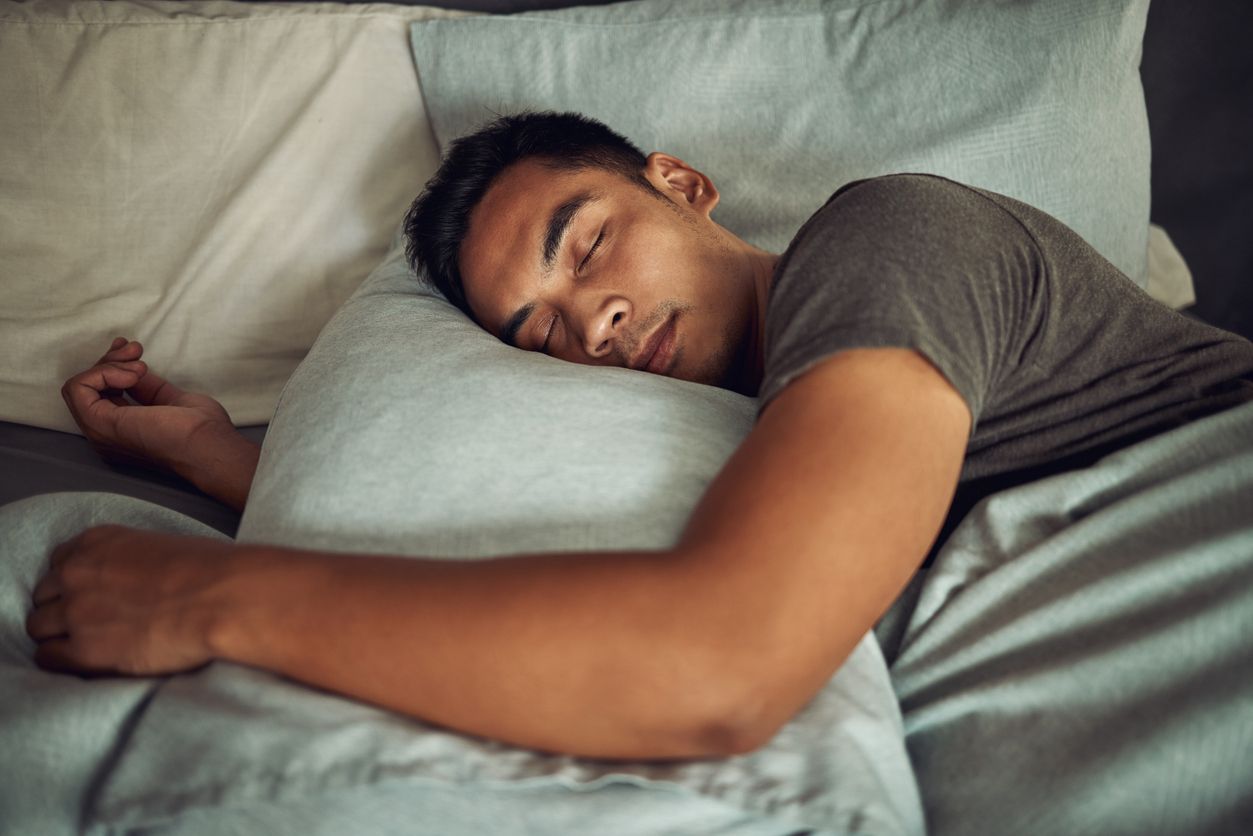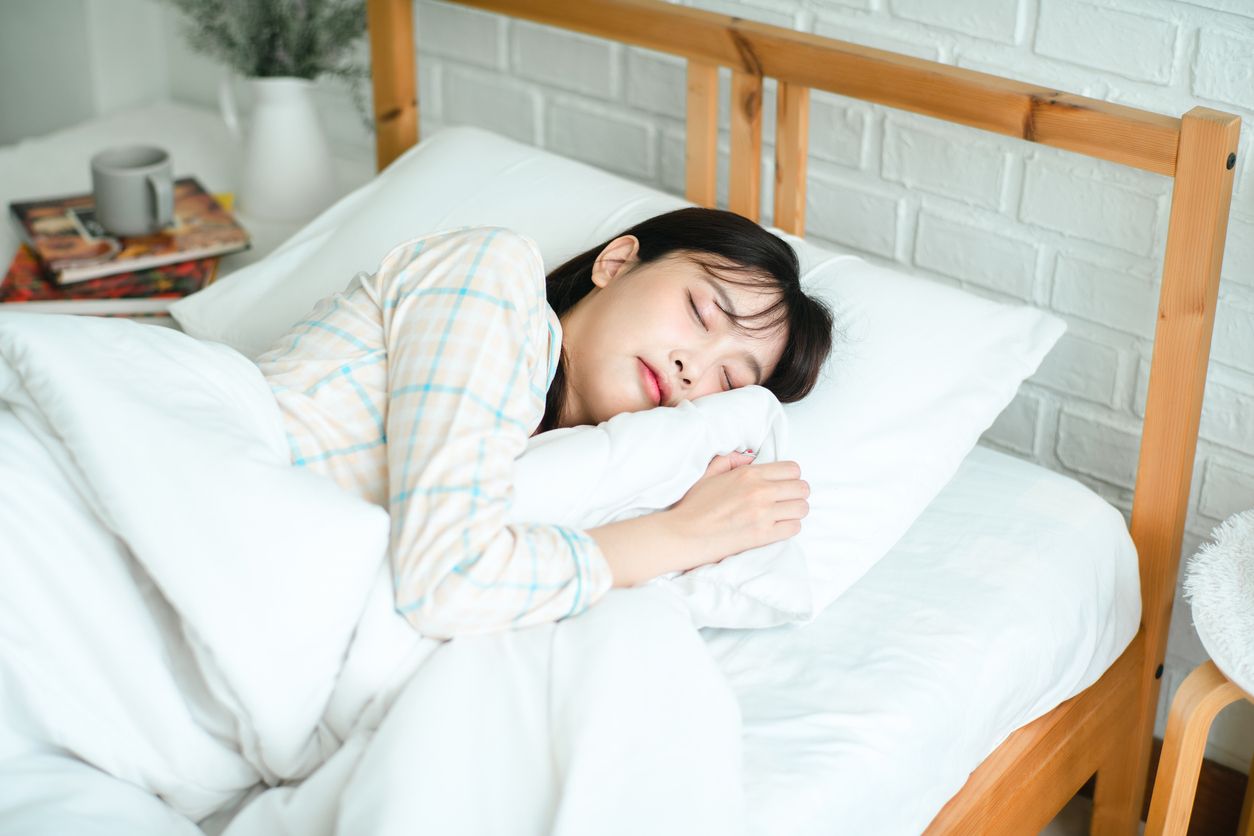- Home
- Trend
- Weight Loss Strategies
- Acne Tips
- Hair Health Information
- Blemish Removal Tips
- Acne Scar Removal Tips
- Muscle Building Techniques
- Intimate Care Tips
- Postpartum Intimate Care
- Eye Bags Wiki
- Tips for Face Slimming
- Secret of Permanent Hair Removal
- Breast Enlargement Tips
- Cure to Snoring
- Marionette Lines
- Skin-Tightening Secrets
Why is it so tough to get quality sleep these days? Even when we try our hardest to sleep well, many of us still have trouble. This is often due to a mix of lifestyle, environment, and health problems.
The Importance of Good Sleep

Before diving into the reasons why sleep can be elusive, it’s important to understand why good sleep is so vital. Sleep is a restorative process that allows the body and mind to recover from the stresses of the day. During sleep, the body repairs tissues, strengthens the immune system, and consolidates memories, while the brain processes emotions and regulates mood.
A good night’s sleep consists of several sleep cycles, each including stages of non-REM (Rapid Eye Movement) sleep and REM sleep. Non-REM sleep is divided into three stages, with deep sleep being the most restorative. REM sleep, on the other hand, is when most dreaming occurs and plays a crucial role in emotional regulation and cognitive function.
When sleep is disrupted or insufficient, the body and mind do not get the rest they need, leading to a range of health problems. Chronic sleep deprivation has been linked to an increased risk of heart disease, diabetes, obesity, and mental health issues such as anxiety and depression. Moreover, poor sleep quality can negatively impact mood, cognitive performance, and overall quality of life.
6 Common Obstacles to Quality Sleep

Several factors can interfere with the ability to sleep well, ranging from lifestyle choices and environmental conditions to underlying medical conditions. Understanding these obstacles is the first step in addressing sleep problems and improving sleep quality.
1. Stress and Mental Health Issues
Stress is one of the most common reasons people have trouble sleeping. Whether it’s due to work pressures, personal challenges, or financial concerns, stress can keep the mind racing at night, making it difficult to relax and fall asleep. When the body is in a state of stress, it produces higher levels of the hormone cortisol, which can disrupt the natural sleep-wake cycle.
Mental health issues such as anxiety and depression are also major contributors to sleep problems. People with anxiety often experience difficulty falling asleep due to excessive worry, while those with depression may struggle with both falling asleep and staying asleep. The relationship between sleep and mental health is bidirectional, meaning that poor sleep can exacerbate mental health issues, creating a vicious cycle.
2. Poor Sleep Hygiene
Sleep hygiene refers to the habits and practices that promote good sleep. Unfortunately, many people have poor sleep hygiene, which can make it difficult to achieve quality sleep. Some common examples of poor sleep hygiene include:
• Irregular Sleep Schedule: Going to bed and waking up at different times every day can disrupt the body’s internal clock, making it harder to fall asleep and wake up at the desired times.
• Excessive Use of Electronic Devices: The blue light emitted by cell phones, tablets, and computers can interfere with the production of the sleep hormone melatonin, making it harder to fall asleep.
• Consuming Stimulants Late in the Day: Caffeine and nicotine are stimulants that can interfere with sleep if consumed too close to bedtime.
• Heavy Meals Before Bed: Eating large meals or spicy foods before bed can cause discomfort and indigestion, making it difficult to sleep.
3. Environmental Factors
The environment in which you sleep plays a significant role in determining sleep quality. Several environmental factors can disrupt sleep, including:
• Noise: Loud or sudden noises can interrupt sleep, especially during the lighter stages of sleep. Even low-level noise, such as traffic outside the window or a partner snoring, can prevent deep sleep and lead to poor sleep quality.
• Light: Exposure to light, especially blue light from electronic devices or bright street lights outside, can interfere with the body’s natural sleep-wake cycle. Darkness signals the body that it’s time to sleep, so reducing light exposure in the evening can help improve sleep.
• Temperature: The temperature of the sleeping environment can also affect sleep quality. A room that is too hot or too cold can cause discomfort and lead to restless sleep. The ideal sleeping temperature is typically cool, between 60-67 degrees Fahrenheit (15-19 degrees Celsius).
Creating a sleep-friendly environment by reducing noise and light and maintaining a comfortable temperature can make a significant difference in sleep quality.
4. Sleep Disorders
Sleep disorders are a major cause of difficulty sleeping well. Common sleep disorders that affect sleep quality include:
• Insomnia: Insomnia is characterised by difficulty falling asleep, staying asleep, or waking up too early and being unable to go back to sleep. Insomnia can be acute, lasting for a short period, or chronic, persisting for months or even years.
• Sleep Apnea: Sleep apnea is a condition in which breathing repeatedly stops and starts during sleep. This interruption in breathing can cause frequent awakenings and lead to poor sleep quality. There are two main types of sleep apnea: obstructive sleep apnea (caused by a blockage of the airway) and central sleep apnea (caused by a failure of the brain to send signals to the muscles that control breathing).
• Restless Legs Syndrome (RLS): RLS is a neurological disorder that causes an irresistible urge to move the legs, often accompanied by uncomfortable sensations. These symptoms typically occur in the evening or at night, making it difficult to fall asleep and stay asleep.
5. Lifestyle Factors
Lifestyle choices can have a significant impact on sleep quality. Some lifestyle factors that can make it difficult to sleep well include:
• Lack of Physical Activity: Regular exercise can help regulate the sleep-wake cycle and promote deeper sleep. However, a sedentary lifestyle can lead to poor sleep quality and difficulty falling asleep.
• Diet and Nutrition: What you eat can also affect your sleep. Diets high in sugar, processed foods, and preservatives can lead to weight gain and health problems that interfere with sleep. On the other hand, a balanced diet rich in fruits, vegetables, lean proteins, and whole grains can support healthy sleep.
• Alcohol Consumption: While alcohol may initially make you feel sleepy, it can actually disrupt sleep later in the night by interfering with REM sleep and causing frequent awakenings.
6. Hormonal Changes
Hormonal changes can also affect sleep quality, particularly in women. Hormonal fluctuations during the menstrual cycle, pregnancy, and menopause can lead to sleep disturbances such as insomnia, night sweats, and hot flashes. These changes can make it difficult to fall asleep and stay asleep, leading to poor sleep quality and increased fatigue during the day.
免費體驗
Fotona 4D NightLase Snoring Treatment
1 Minute Self-Registration
Date should not be before minimal date
How Does Technology Affect Sleep Disruption?
In our modern world, technology plays a significant role in sleep disruption. The widespread use of electronic devices, such as smartphones, tablets, and computers, has made it increasingly difficult for many people to achieve a good night’s sleep.
The Impact of Blue Light
One of the main ways technology disrupts sleep is through the exposure to blue light emitted by electronic devices. Blue light has been shown to suppress the production of melatonin, the hormone that regulates sleep-wake cycles. This suppression can delay the onset of sleep and reduce the overall duration of sleep, leading to poor sleep quality.
To combat the effects of blue light, it’s recommended to limit screen time before bed and use features such as night mode or blue light filters on devices. Additionally, turning off electronic devices at least an hour before bedtime can help the body prepare for sleep.
Social Media and Sleep Disruption
Social media can also interfere with sleep by keeping the mind engaged and delaying the natural wind-down process that occurs before sleep. Scrolling through social media feeds before bed can stimulate the brain, making it harder to relax and fall asleep. Additionally, exposure to emotionally charged or stressful content on social media can increase anxiety and make it difficult to sleep.
To improve sleep quality, it’s important to set boundaries around social media use, especially in the evening. Establishing a bedtime routine that does not involve electronic devices can help signal to the body that it’s time to sleep.
Enhancing Sleep Quality with Fotona 4D NightLase Snoring Treatment
If snoring is disrupting your sleep and impacting your overall well-being, Fotona’s 4D NightLase treatment offers a solution. This innovative, non-invasive procedure is specifically designed to address snoring and improve sleep quality. By using advanced laser technology, NightLase tightens and tones the tissues in the throat, which helps to reduce the vibrations that cause snoring. This, in turn, keeps the airway open and leads to quieter, more uninterrupted sleep. For those struggling with the disruptive effects of snoring, NightLase presents a promising option.
Fotona’s Approach to Sleep Apnea
For people dealing with obstructive sleep apnea, Fotona’s 4D NightLase treatment offers targeted solutions that can complement other treatments. The laser therapy aims to improve the tone of the throat tissues, potentially reducing the frequency and severity of apnea episodes.
Combining Fotona’s treatment with traditional approaches, such as CPAP therapy, can provide a more comprehensive strategy for managing sleep apnea and improving overall sleep quality.
Reducing Sleep Deprivation
Chronic sleep deprivation often results from persistent snoring and disrupted sleep patterns. Fotona’s treatments address the root cause of snoring, which can, in turn, help mitigate the effects of sleep deprivation. By improving the quality of your sleep through effective snoring reduction, Fotona’s solutions contribute to a more restorative and refreshing sleep experience.
Benefits Beyond Snoring Relief
In addition to reducing snoring, Fotona’s treatments can have broader benefits for your sleep health. Improved sleep quality leads to better overall health outcomes, including enhanced immune function, lower risk of cardiovascular issues, and improved mental health. With Perfect Medical's Fotona 4D NightLase Snoring Treatment technology, you’re not only targeting the immediate issue but also supporting your long-term well-being!
The Influence of Diet and Exercise on Sleep
Diet and exercise are two lifestyle factors that have a significant impact on sleep quality. The foods you eat and the amount of physical activity you get can either support or hinder your ability to sleep well.
1. Diet and Sleep
The relationship between diet and sleep is complex, with certain foods and nutrients playing a role in promoting sleep or disrupting it. Some dietary factors that can affect sleep include:
• Caffeine: Caffeine is a stimulant that can interfere with sleep by blocking the action of adenosine, a chemical that promotes sleep. It’s best to avoid caffeine in the afternoon and evening to ensure it does not disrupt sleep.
• Sugar and Processed Foods: Diets high in sugar and processed foods have been linked to poorer sleep quality. These foods can cause blood sugar spikes and crashes, leading to wakefulness during the night.
• Tryptophan: Tryptophan is an amino acid that is a precursor to serotonin, a neurotransmitter that promotes relaxation and sleep. Foods rich in tryptophan, such as turkey, chicken, and dairy products, may help improve sleep quality.
• Magnesium: Magnesium is a mineral that plays a role in muscle relaxation and sleep. Foods rich in magnesium, such as leafy greens, nuts, and seeds, can support better sleep.
Eating a balanced diet that includes a variety of nutrient-rich foods can help promote better sleep. Additionally, avoiding heavy or spicy meals close to bedtime can prevent discomfort and indigestion that can interfere with sleep.
2. Exercise and Sleep
Regular physical activity is one of the most effective ways to improve sleep quality. Exercise helps regulate the sleep-wake cycle, reduce stress, and promote deeper sleep. However, the timing and type of exercise can influence its effects on sleep.
• Morning and Afternoon Exercise: Engaging in physical activity in the morning or afternoon can help boost energy levels during the day and promote relaxation in the evening. Exercise during these times can also help regulate the sleep-wake cycle and make it easier to fall asleep at night.
• Evening Exercise: While exercise is generally beneficial for sleep, vigorous exercise too close to bedtime can have the opposite effect. High-intensity workouts can increase heart rate and adrenaline levels, making it harder to wind down and fall asleep.
免費體驗
Fotona 4D NightLase Snoring Treatment
1 Minute Self-Registration
Date should not be before minimal date
Overcoming Sleep Challenges and Getting Better Night's Sleep!
Achieving a good night’s sleep can be challenging, but by understanding the factors that disrupt sleep and taking proactive steps to address them, you can improve your sleep quality and overall well-being. Whether it’s managing stress, improving sleep hygiene, or making lifestyle changes, there are many ways to enhance your sleep and enjoy the restorative benefits it provides.
Remember, sleep is not a luxury—it’s a necessity for a healthy and fulfilling life. Start prioritising sleep and take steps to overcome the obstacles that make yourself hard to sleep well, so you can achieve the quality rest you need today.

免費體驗
Fotona 4D NightLase Snoring Treatment
1 Minute Self-Registration
Date should not be before minimal date
FAQ

1. How can keeping a sleep diary help identify why it's hard to sleep well?
Keeping a sleep diary can provide valuable insights into your sleep patterns and behaviours. By tracking your sleep duration, bedtime routine, and factors such as cell phone use before bed, you can identify potential disruptions to your sleep quality.
2. What role does the brain play in the difficulty of achieving a good night’s sleep?
The brain plays a crucial role in regulating sleep through its control of circadian rhythms and sleep cycles. Difficulty falling or staying asleep can result from disruptions in brain function, often caused by stress, excessive screen time, or irregular sleep patterns.
3. How do modern distractions, such as cell phones, affect sleep?
Modern distractions like cell phones can significantly impact sleep quality. The blue light emitted by screens interferes with melatonin production, making it harder for the brain to prepare for sleep. This disruption can lead to difficulty falling asleep and poorer sleep quality overall.
4. Why is it important to consider weekends and weekly patterns in addressing sleep issues?
Sleep patterns can be influenced by how consistently you maintain your sleep schedule throughout the week. Weekends often involve irregular sleep hours, which can disrupt your body's internal clock and lead to sleep difficulties. Maintaining a consistent sleep schedule, even on weekends, can help regulate your sleep patterns and improve overall sleep quality.
5. How can seeking the advice of a sleep expert benefit someone struggling with poor sleep?
Consulting a sleep expert can provide tailored solutions for those struggling with sleep issues. Experts can analyse your sleep diary, assess factors such as brain function and sleep environment, and recommend personalised strategies or treatments.








